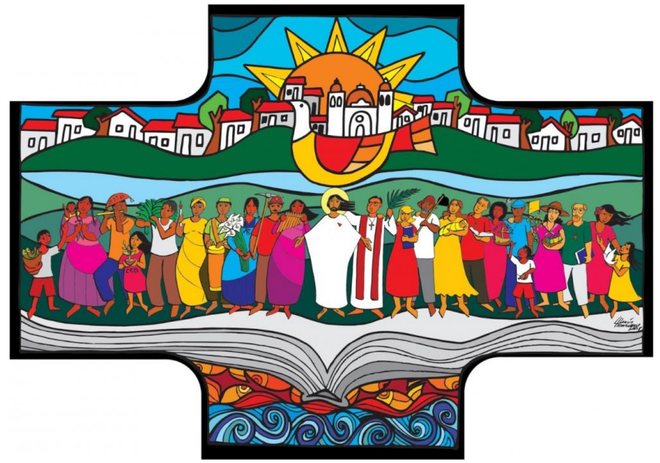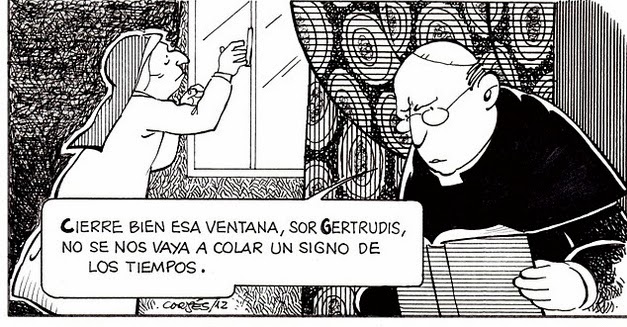“Already after Vatican II there were quite remarkable new approaches to priestly formation in many dioceses, which, however, were largely exhausted in the setback of the double pontificate of John Paul II and Benedict XVI,” warns Bauer
“Pope Francis recommends synodality, the ‘moving forward together’ of all the baptized, as an ‘antidote’ against systemic abuses of power,” adds the theologian
“Instead of demanding that you enter the seminary, you have to demand that you go out into the world”, Christian Bauer expresses himself so clearly and forcefully in an article published on the German religious portal Katholisch.de. The reflections of this theologian of the Innsbruck pastoral they take place in the context of the debate being carried out by the German Bishops’ Conference on the future of priestly formation. At the same time, Bauer assures that this is also a key theme in the Synodal Way.
For Bauer, in view of the current crisis of abuse in the German Church and also in the universal one, “this contribution to the debate is intended to be an impetus for a fundamental and global rethinking of priestly formation in the context of the synodal self-evangelization of the Church”. In this sense, the theologian warns that “already after Vatican II there were quite remarkable new approaches to priestly formation in many dioceses, which, however, were largely exhausted in the setback of the double pontificate of John Paul II and Benedict XVI ”.
–
“The generalized reclericalization of those ‘lead years’ – he warns in reference to the pontificates of Wojtyla and Ratzinger- it is a heavy mortgage for all ecclesial vocations, including that of the priests. After a lecture, an elderly priest once told me that he had been insulted twice in his life as a ‘Council priest’: once as a young chaplain by his old pastor, and now as an old pastor by his young chaplain. In the pontificate of Pope Francis, however, new possibilities are now emerging for a post-clerical priestly formation that is ‘synodal’ in the sense of a community of equals along the way ”.
Synodality instead of clericalism
Bauer has no doubt that priestly formation as it has hitherto been conceived often leads to a dangerously identified “socialization in a clerical habitus” (“often not foreseen, but nevertheless effective as a system effect”), long as “an essential reason for spiritual abuse to sexualized violence.” “Despite the best intentions of the formators,” the German theologian acknowledges— previous forms of priestly formation favor the formation of a pernicious clerical esprit de corps”.

–
The problem here, he assures, is not so much the individual behaviors of certain clerical male associations, but rather these male associations themselves: “EClericalism means a hierarchical-authoritarian system, which on the part of the priest can lead to an attitude of domination of non-ordained people in interactions, because it has a higher position than office and ordination. Sexual abuse is an extreme consequence of this domination. In short: clericalism is the pastoral power plus the corporate image of the church. Or even shorter: oppressive paternalistic care “, sentence.
To understand how dangerous a sacralizing self-confusion of church power with Christ’s authority is in this context, Bauer draws on an original statement from a survivor of sexual abuse: “He told me that I am cursed by God and that God hates me. He abused me in front of the Blessed Sacrament, he desecrated me and said that God wants this and that God approves of it. What I do to you, God does to you ”. For the sociologist, this is “the existential obstacle against which a fundamental reorientation of priestly formation is urgently needed, signaling a true conversion.”

–
Bauer recalls that the process towards a profound conversion requires magisterial support, a support that the Church finds in Rome from the hand of Pope Francis. “Bergoglio recommends synodality, the ‘moving forward together’ of all the baptized, as an ‘antidote’ against systemic abuses of power,” says the theologian. In this sense, he clarifies that the latest discussion document of the DBK working group proposes a “synodal” path with its idea of a common formation of future priests, parish and pastoral assistants. “Because the pastoral formation of the ‘Entirely synodal Church’ that Francis proposes is also a synodal path, that is, a path shared by all those involved -from the Greek syn-odos, the common path (” syn- “) (” – ears “): formation as a common school of discipleship”, he points out.
Regarding the formation of future ministers of the Church, Bauer assures that they must know and be able to practice a form of theological knowledge “that resembles that of the way.” And for this he recovers the words of Johann B. Metz (“Only by following him do Christians know by whom they have been carried away”) and Bernhard Spielberg (“Caravan leaders are not trained in a boarding school. For the desert one trains in the desert. At the age of fifteen, young people are chosen to go with a caravan for fifteen years. Only then do they assume responsibility themselves. Along the way they learn to be on the road ”).



